As advanced automation, data analysis, hardware and software accelerate development in this fast-growing segment of the satellite industry, questions arise about how users will eventually capitalize on this growth. Users, including Agriculture, Civil Government, Defense & Intelligence, Education & Research, Emergency Management, Energy & Infrastructure, Finance & Business, Forestry & Land Use, Insurance and Mapping, are eager to engage with “eyeballs in the sky”. But what cost, what platforms and what economic drivers are now in place for future access to these technologies?
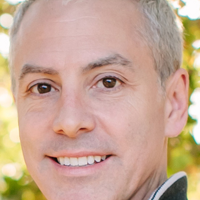 Todd Simon
Todd Simon
Todd Simon is an executive in residence with London investment firm DN Capital, and founder of Geospatial Alpha, to invest and stimulate innovation in geospatial intelligence. Todd also serves as advisor to the European Space Agency. He is a former senior technology investment banker with DLJ, Credit Suisse, and Oppenheimer, and has held executive and board positions with location technology companies including GroundTruth, the world’s largest mobile proximity intelligence company, and Gravy Analytics, the first geo-signals data cloud. Todd holds an MBA from Columbia Business School and a BA from Brandeis University.
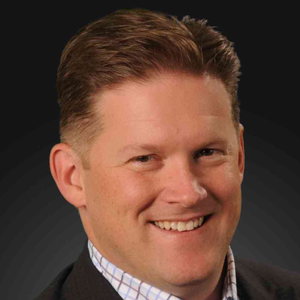 Derek Edinger
Derek Edinger
Derek Edinger is Chief Strategy Officer and Co-founder of Ursa. In this role, he focuses on product strategy, business development, strategic partnerships, and satellite data procurement. Derek has 20+ years of experience in the satellite and remote sensing industry. Prior to co-founding Ursa, Derek held senior management and engineering positions at SSL, Lockheed Martin, and Raytheon.
Ursa was founded in 2014 to connect people to information-rich data derived from satellite-based synthetic aperture radar. Ursa’s vision is to create a living mosaic of the earth, providing truth to businesses, industries, and individuals about what is really happening worldwide through satellite data analytics.
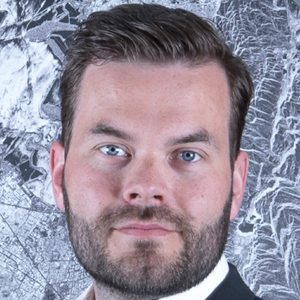 Matti Ekdahl
Matti Ekdahl
Matti is a passionate business and sales developer with previous experience in high tech medical solutions such as patient-specific 3D-printable medical implants and algorithmic analysis of osteoarthritis. For ICEYE, Matti has worked in total for nearly 3 years focusing on running information services product development and sales. ICEYE aims to launch and operate a constellation of micro-SAR satellites providing access to timely and reliable Earth observation data. ICEYE is the first company that has successfully miniaturized a SAR satellite, creating a unit that is 100x more cost-effective than traditional counterparts.
Matti’s educational background is in medical physics and he also has an airline transport pilot’s license. Matti has had a lifelong interest in space, which got him a NASA diploma already by the age of 17.
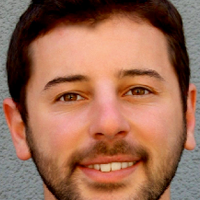 Mike Safyan
Mike Safyan
In 2011, Mike Safyan joined the eight-person founding team at Planet (known as “Cosmogia” at the time) where the company was building the first iterations of its Dove smallsats in a Cupertino garage. Since then, Planet has expanded to a global organization leading the NewSpace industry, with 400 employees and the world’s largest fleet of Medium-resolution and High-resolution Earth Imaging satellites. Mike is responsible for Planet’s Launch strategy and has overseen the launch of over 300 Planet satellites across 20 launch attempts working with a variety of different launch providers and launch vehicles. Mike’s role at Planet has evolved over time; he was previously in charge of Planet’s Regulatory Licensing & Compliance, working with Export Control agencies, the FCC, the ITU and NOAA to obtain the required approvals and authorizations for commercial, remote sensing satellites, and for a time he also oversaw the regulatory licensing and contractual management of Planet’s global ground station network.
Mike received his B.S. of Aerospace Engineering at UCLA, and a M.Sc. of Space Studies at the International Space University in Strasbourg, France. He started his career working on lunar rover designs for the Barcelona Moon Team competing for the Google Lunar X-Prize, and then joined the PhoneSat team at NASA Ames where he worked as a Systems Engineer developing ultra low-cost cubesats utilizing smartphone technologies. In 2018, Mike received the SSPI Promise Award, which recognizes outstanding achievement by satellite industry professionals under the age of 35.
 James Slifierz
James Slifierz
James is a Co-Founder and CEO of SkyWatch, a fast growing startup on a mission to simplify access to satellite data. SkyWatch enables its customers, spread across dozens of industries, to programmatically integrate commercial satellite imagery into their software applications with a very simple-to-use Application Programming Interface (“API”). To achieve this, SkyWatch works closely with satellite imagery providers to automate their image processing and data distribution, all-the-while providing them with rapid access to new emerging markets and applications. SkyWatch’s vision is a world in which Earth Observation applications are as ubiquitous as GPS applications, influencing everyone’s lives, even if they don’t realize it.
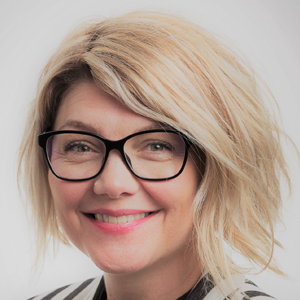 Nina Soleng
Nina Soleng
Nina has more than 10 years of experience in the satellite industry, having held various positions while at KSAT. With a background from publishing and content marketing, she is currently responsible for the company´s communication across the business units.
Representing KSAT, Nina travels to countries around the world speaking on panels and seminars, engaging government and commercial stakeholders.
In her previous role as International Sales Manager, Nina’s main focus was Maritime Monitoring services based on SAR data (Synthetic Aperture Radar). KSAT provides oil spill monitoring and vessel detection services globally and has pioneered the industry with pushing the timelines for Near-Real-Time (NRT) delivery of actionable information- leveraging the global ground network, especially the unique Svalbard station.
Nina has had the opportunity to work with several of the most significant international oil companies (IOC´s), government authorities, coastguards and other stakeholders with key focus areas in Latin America, South America, and the Middle East.
Her portfolio also included the European Maritime Safety Agency (EMSA), an Agency providing technical assistance and support to the European Commission and Member States on maritime safety, pollution by ships, and maritime security.
Nina is former Chairman of the Norwegian Oil Spill Control Association, (NOSCA), a non- profit association dedicated to promoting products and services within global oil spill preparedness and response, representing more than 30 Norwegian companies.
She lives in the Arctic Capital of Tromsø in Norway- an ideal place for Polar Ground Stations and cross-country skiing.